Key Publications
The following publications represent the core work INPUD engages in and are among our most-referenced resources. Each link will take you to the publication’s page where translations can be found where available.
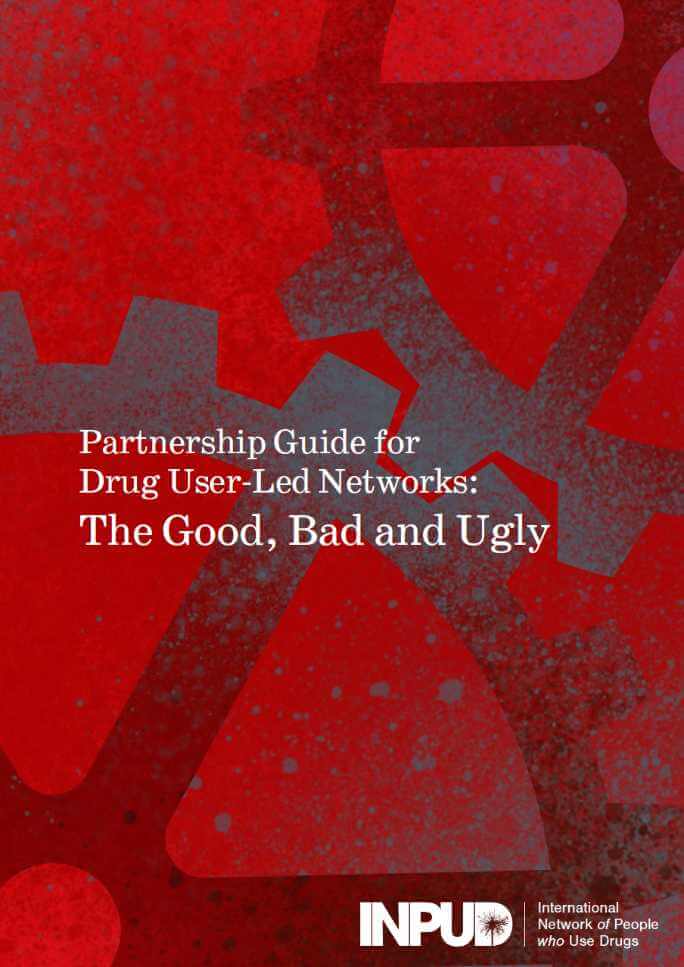
Partnership Guide for Drug User-Led Networks: The Good, Bad and Ugly
This Guide has been written to provide drug user-led networks with invaluable advice for building the sorts of partnerships that will advance our movement and make us stronger. It draws from the experience of our regional networks for making an effective audit of partnerships we have already forged and assessing new partnerships as they develop.
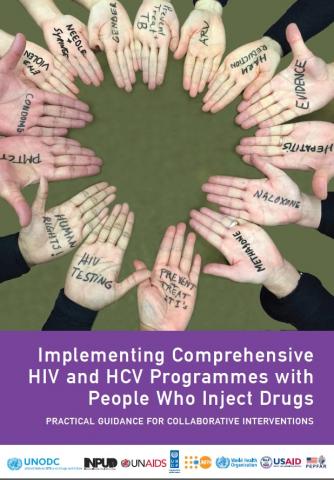
IDUIT (Implementing Comprehensive HIV and HCV Programmes with people who Use Drugs)
The IDUIT contains practical advice on implementing HIV and hepatitis C (HCV) programmes with people who inject drugs. The tool is designed for use by public-health officials, managers of HIV and harm reduction programmes, NGOs – including community and civil-society organizations – and health workers. It may also be of interest to international funding agencies, health policy-makers and advocates.
The IDUIT is further supplemented by the IDUIT Brief Guide for People who Use Drugs, which advises drug user activists on how to use the IDUIT for the promotion of better drug policies and practice.
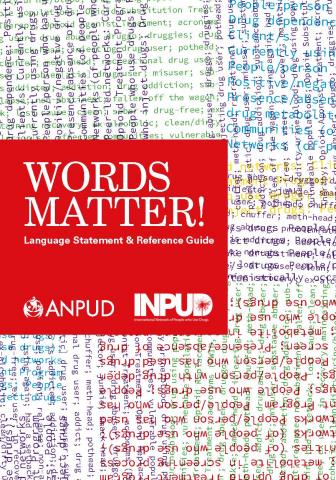
Words Matter! Language Statement and Reference Guide
Compiled by INPUD and the Asian Network of People who Use Drugs (ANPUD), this guide aims to explain our current position on the use of language and to provide clear advice on what is acceptable to us as communities of people who use drugs. We want to encourage all people to be thoughtful about the language and words they use, and have therefore provided a reference guide that identifies stigmatising language and gives non-judgemental, strengths-based, and respectful alternatives.
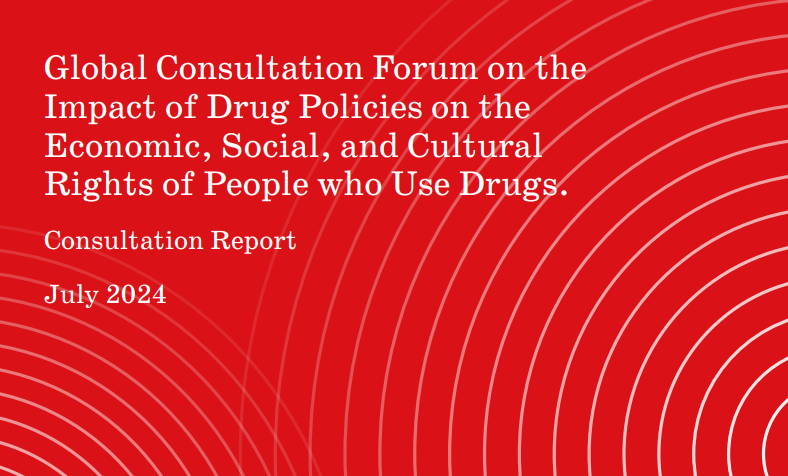
This report constitutes INPUD’s vital contribution to the CESCR commitment to draft a General Comment to “clarify States’ obligations relating to the impact of drug policy on the enjoyment of rights enshrined in the Covenant in order to provide a framework for implementation of the Covenant as whole with regard to drug laws, policies and practices.”

Narcofeminism: Revisioning Drug Use
In collaboration with the University of London and Deakin University, the Sociological Review Monographs Series: Narcofeminisms: Revisioning Drug Use was published in July 2023. The series includes the perspectives of 15 contributors, ranging from academics, activists, and people whose lives are intimately connected with drugs, including written contributions from women who use drugs involved in the early initiation of Narcofeminism. The monograph was launched in Paris on 6-8 September 2023 at the Contemporary Drug Problem Conference where Judy Chang read an excerpt from her chapter. The publication of this series marks an important milestone for the recognition of how activism by women who use drugs shapes broader sectors.
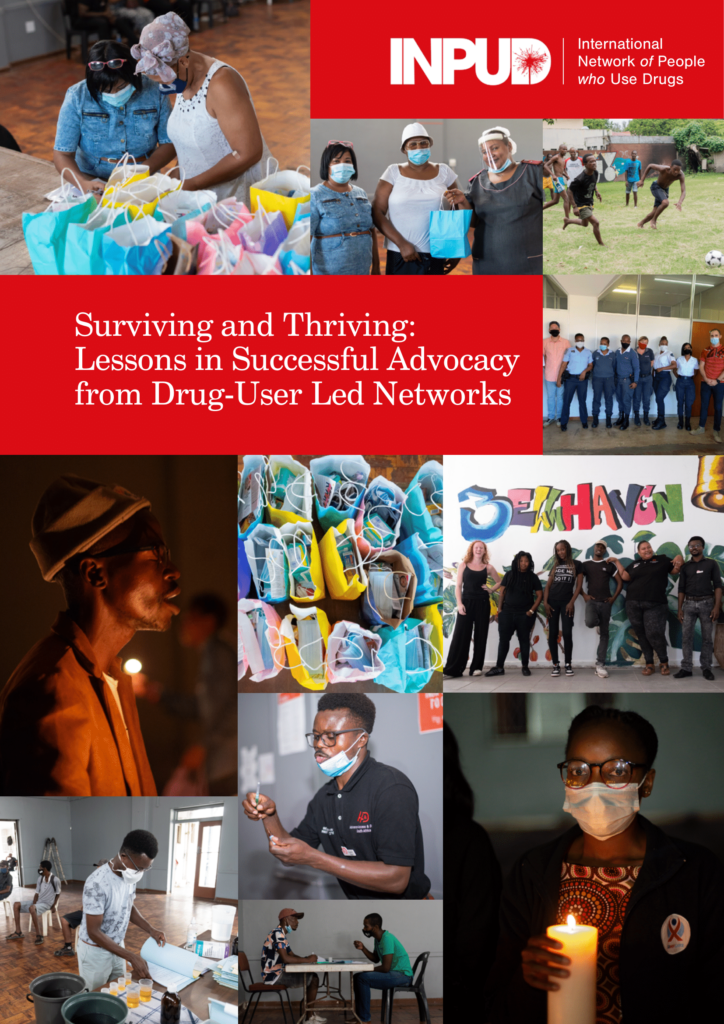
Surviving and Thriving: Lessons in Successful Advocacy from Drug User-Led Networks
This report aims to show how and why peer-led networks should be given primacy by donors and recognised for their work. It demonstrates how peer-led drug user networks have strategised and mobilised to leverage limited resources to positive effect, and how they are thriving in adversity and crisis, in the context of insufficient and unstable resources. Highly restrictive funding, underfunding – and unsustainable funding for drug user-led networks – undermine their ability to do transformative work, are anathema to the universally-held value of the meaningful involvement of key populations, and detrimental to social justice and human rights.
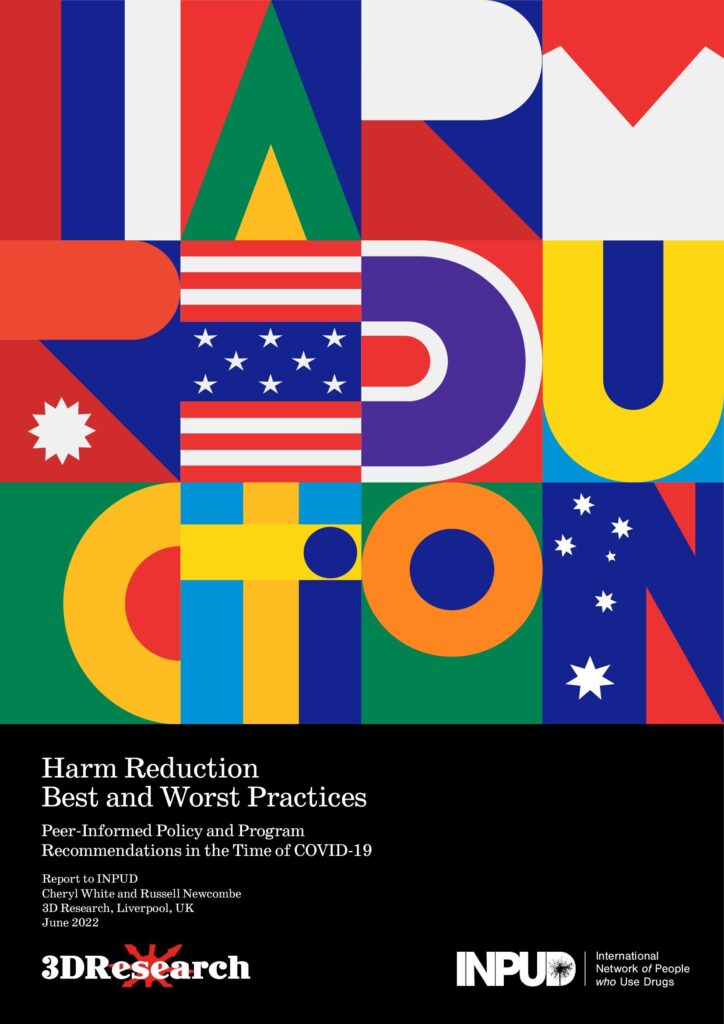
Harm Reduction Best and Worst Practices
In 2016, INPUD commissioned a project that used in-depth, qualitative interviews with twenty peer drug user activists and harm reduction specialists from a range of different countries to develop a comprehensive set of seventeen key harm reduction interventions based on ‘best and worst practices’ in these areas. The result was a “Harm Reduction Best Practices Tool Kit”, intended for harm reduction service providers around the world. The document focuses on three harm reduction interventions.
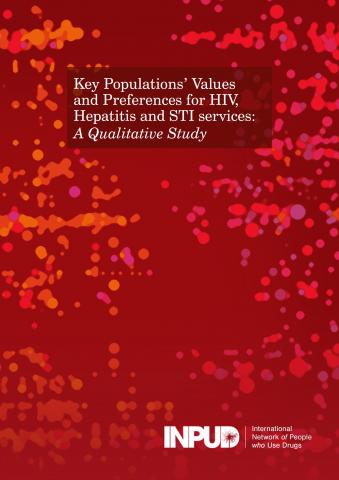
Key Populations’ Values & Preferences for HIV, Hepatitis and STIs Services
In 2021 INPUD collaborated with the World Health Organization (WHO) Department for Global HIV, Hepatitis and STI Programmes on a global qualitative study examining the values and preferences of key populations, including people who inject drugs, for HIV, Hepatitis and STIs services. The findings of this study will inform the update of the WHO 2016 Consolidated Guidelines for HIV prevention, diagnosis, treatment and care for key populations, which are used to inform countries on the design and implementation of health packages for key populations (people who inject drugs, gay and bisexual men and other men who have sex with men, female, male and trans sex workers and trans people).
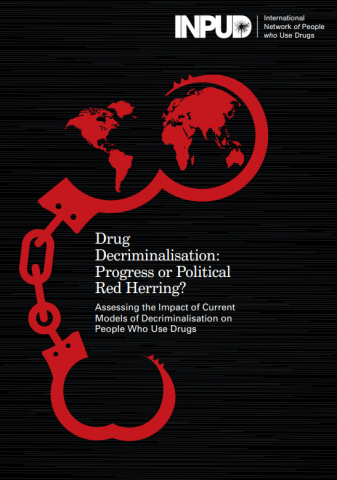
Drug Decriminalisation: Progress or Political Red Herring?
Decriminalisation is often discussed as if there is only one model, leading to a view that decriminalisation anywhere equals progress. However, there are many different models of decriminalisation in operation, all with different impacts on people who use drugs. This report amplifies the voices of peers in countries that have implemented various approaches to decriminalisation in order to make clear the expectations people who use drugs have for future action on drug policy reform. Most importantly, it includes a call for full decriminalisation without sanctions as the new baseline for measuring progress on decriminalisation in the future.

Out in the Cold: Community-led services abandoned as donor funding declines in Kyrgyzstan
In January of 2019, the landscape of support for many people living with or affected by HIV in Kyrgyzstan had changed radically when the services of their three community-led NGOs were ended due to the cease of funding from the country’s Global Fund (GF) programme. In April of 2019, with support from the Community Rights and Gender Technical Assistance Programme (CRG), INPUD decided to investigate the situation to identify measures that might be taken to ensure access to needed services, and to learn any lessons that might be relevant to Kyrgyzstan and other middle-income countries facing similar reductions in donor funding and slow implementation of social contracting.
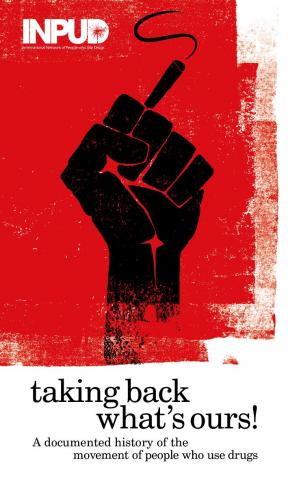
Taking Back What’s Ours! A Documented/Oral History of the Movement of People who Use Drugs
Taking Back What’s Ours is a video series, done in partnership with Rights Reporter Foundation, which draws on accounts from people who use drugs across the world to captures the history and genesis of the global movement of people who use drugs. In this series you will meet activists undertaking critical work in their communities, and learn how they navigate this work within the context of criminalisation, stigmatisation and oppression.
The accompanying research report further documents the meanings that we attribute to the movement, the challenges and tensions they perceive working within and outside the movement, and strategies for affecting positive change. The report amplifies the voices of leading advocates and identifies common features of the movement while also paying attention to contextual factors that may facilitate or impede progress.
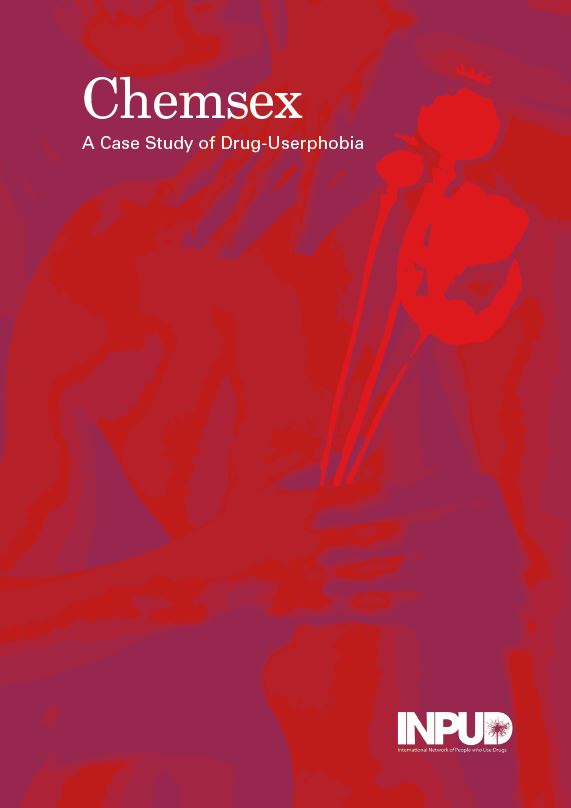
Chemsex: A Case Study of Drug-Userphobia
Chemsex is an emerging term that refers to the use of certain drugs in the context of sex. It is a term associated with a number of communities of gay and bisexual men, the clubbing and club drug scenes, and the fetish and BDSM scenes though, of course, other communities can and do engage in chemsex. Specifically, it refers to sex that is accompanied, enhanced, and/or facilitated by drugs. As with all people who use drugs, people who engage in chemsex are diverse and heterogeneous. This report draws on a consultation regarding chemsex undertaken by INPUD in South Africa, along with consultations with communities of people who use drugs in other regions, to challenge the stigma and discrimination experienced by individuals who engage in chemsex.
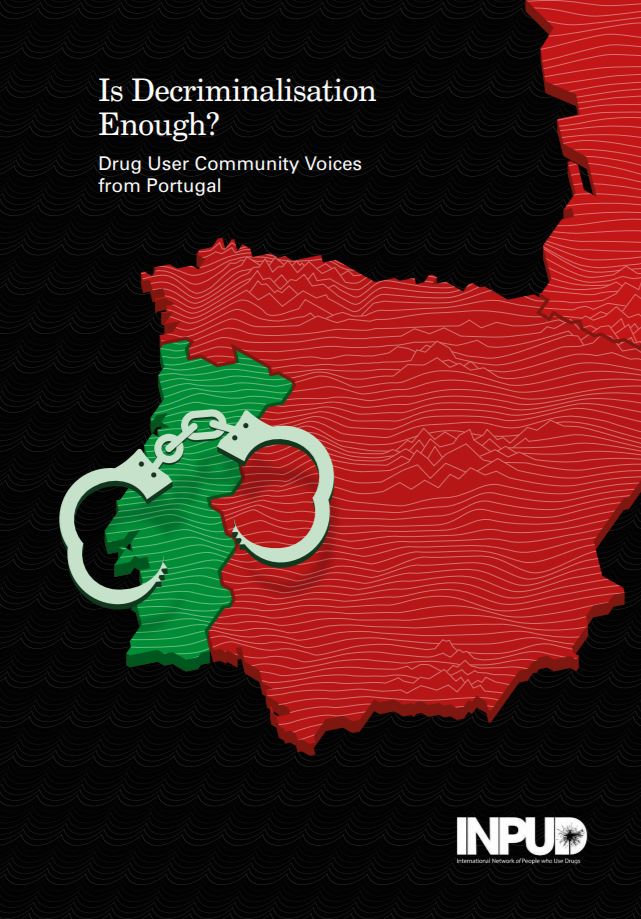
Is Decriminalisation Enough? Drug User Community Voices from Portugal
Introduced in 2000, Portugal’s model of decriminalisation has been hugely influential and is frequently referred to as an example of legislative reform that has improved public health, social order, and the health and wellbeing of people who use drugs. However, the lived experiences, perspectives, and rights of the drug-using community are rarely taken into account in assessing the outcomes of decriminalisation in Portugal. Interactions with the state and the police, and issues of violence, social exclusion, stigmatisation, and discrimination, are often entirely omitted from discussion and analysis of decriminalisation in Portugal. This report describes perspective on the Portuguese decrminalisation model from the perspective of the community, drawing from a 2016 consultation with Portugal’s drug user rights organisation CASO (Consumidores Associados Sobrevivem Organizados).
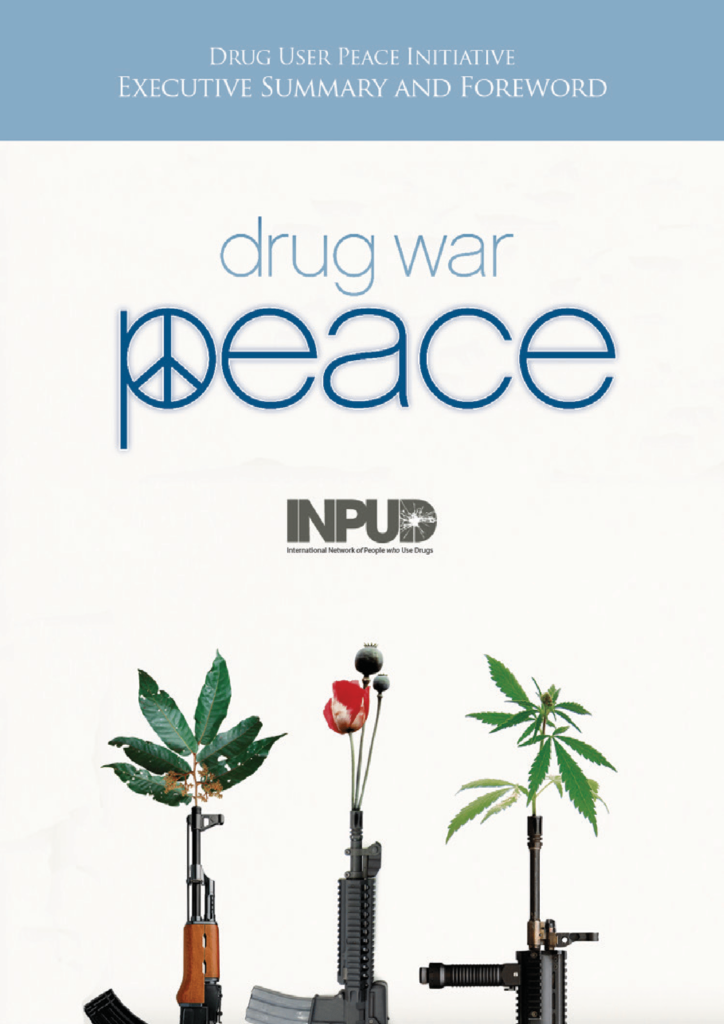
INPUD’s Drug User Peace Initiative was conducted in January 2015 in the lead up to the 2016 UN General Assembly Special Session on Drugs (UNGASS) to highlight some of the most considerable and systemic harms that are done to people who use drugs in the name of the war on drugs. The campaign includes four key documents, each with a specific focus, that provide evidence-based arguments which can be used to inform advocacy by drug user activists and their organisations, as well as other drug law reform activists and key stakeholders, and are designed particularly to be used for such purposes leading up to the UNGASS session and beyond.
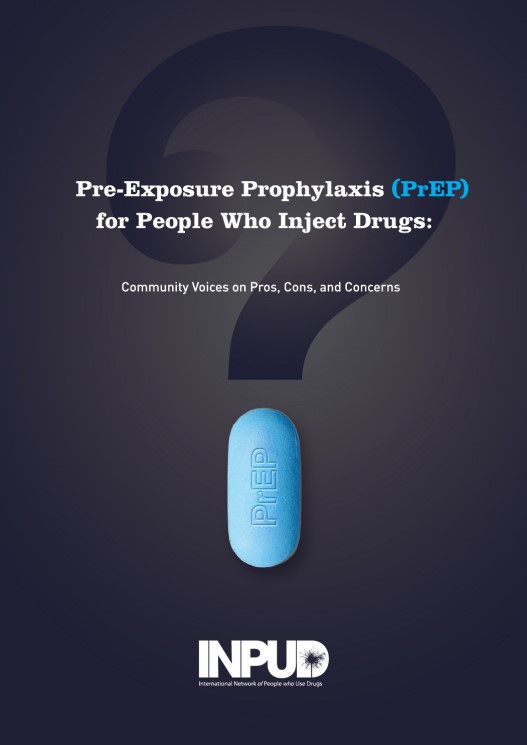
As the use of PrEP for preventing HIV transmission becomes more prevalent, it is essential that affected communities be meaningfully involved in related policymaking and in any subsequent programme implementation. INPUD therefore researched the knowledge, beliefs, and opinions of people who inject drugs about potential pros, cons, and concerns related to PrEP. With this paper, INPUD aims to amplify the voices of people who inject drugs so that their unique knowledge and perspectives can be taken into account as policies related to PrEP are formulated.
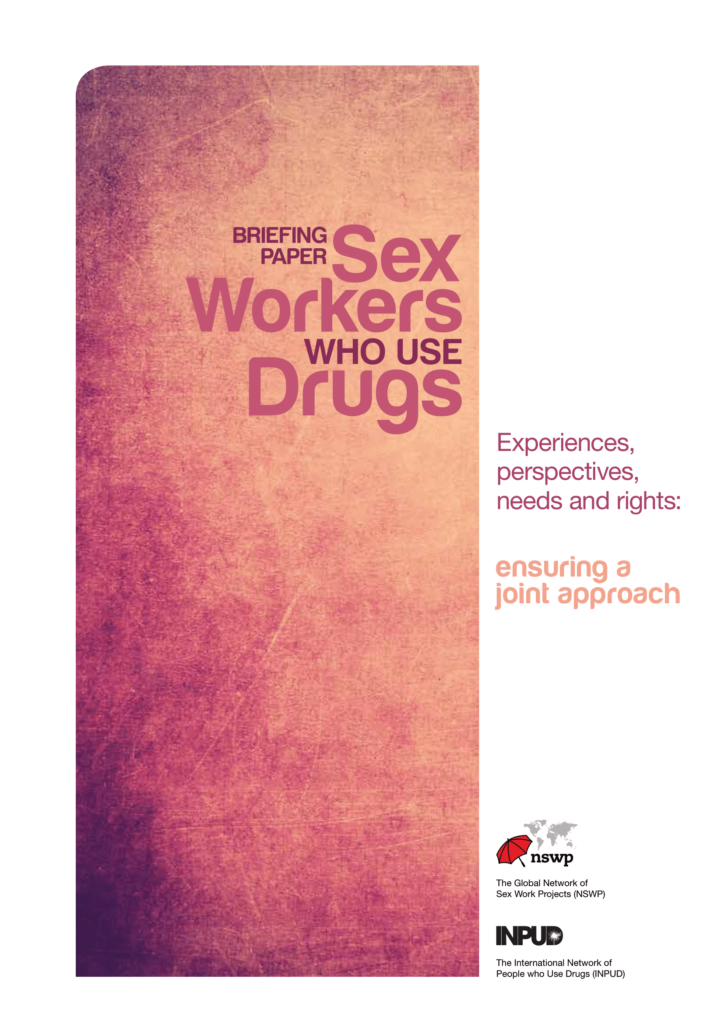
Sex Workers who Use Drugs: Ensuring a Joint Approach
This joint briefing paper by NSWP and INPUD highlights the specific needs and rights of sex workers who use drugs, as a community that spans two key populations. This document provides an overview of some of the most endemic and substantive ways in which sex workers who use drugs face double criminalisation and associated police harassment, intersectional stigma, compounded marginalisation and social exclusion, heightened interference and harassment from healthcare and other service providers, infantilisation, pathologisation, and an associated undermining of agency, choice, and self-determination. A Community Guide is also available.
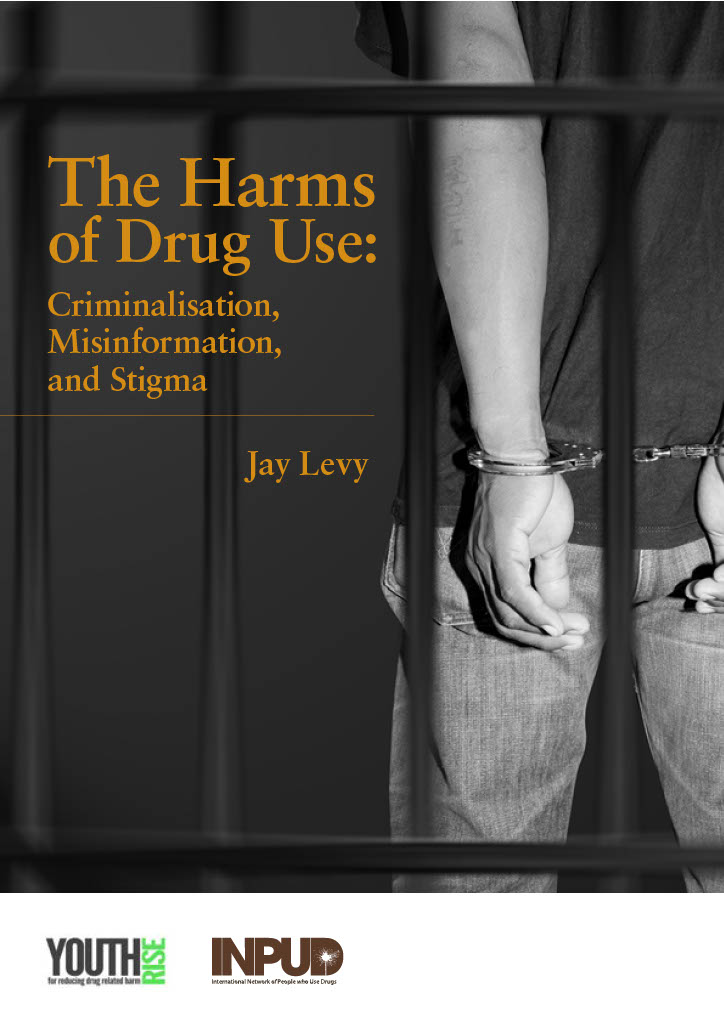
The Harms of Drug Use: Criminalisation, Misinformation, and Stigma
Globally, criminalisation of and punitive approaches to drug use continue to be implemented, in spite of there being little evidence to suggest that these policies have yielded positive results. This report, published jointly by INPUD and Youth RISE and authored by Dr. Jay Levy, argues that harms surrounding drug use are primarily caused due to punitive laws and policies, along with their justificatory social constructions and stigmas, which also worsens many of other avoidable harms.